|
Luke 21:34 states, “Beware that your hearts do not become drowsy.” As we prepare to kick-off the season of Advent 2015, Christ implores us to be alert to the dangers of a drowsy heart. I was flabbergasted when I walked into a store the week after Halloween to hear Christmas music floating through the air. I absolutely love Christmas music and, when the time comes, will listen to it right up through the celebration of the Epiphany. However, I find it humorous and a bit befuddling that it seems that we begin to hear Christmas music earlier and earlier each year and yet, on December 26th, it becomes a scavenger hunt to find the familiar, heartwarming tunes on the air and in stores. As Catholics, we have not even celebrated the visit of the magi yet and the Christmas airwaves have gone silent. The holiday season is notorious for its stress, anxiety and drain on our time and energy. Our Advent calendars become filled with shopping excursions, parties, decking the halls and busying ourselves in the kitchen. All of these are wonderful ways to express our love for the season and our love for one another. However, I find that the older I get and the more responsibilities I gain, it becomes harder to latch onto, and maintain, the wide eyed childhood wonder and awe of the Christmas season in its entirety. By the time December 26th rolls around, my heart is drowsy. In the midst of the hustle and bustle, the Word speaks to us again. Proverbs 4:23 states, “With closest custody guard your heart, for in it are the sources of life.” Let us take a moment to reflect on what has arrived for us as Catholics as we begin this season of Advent. Our salvation was made visible with the birth of a child. Isaiah 9:5 proclaims, “For a child is born to us, a son is given us; upon his shoulder dominion rests. They name him Wonder-Counselor, God-Hero, Father-Forever, Prince of Peace.” The dancing harmonies of Handel’s Messiah begin to reverberate through my mind. The prophet Isaiah is speaking to each one of us. A child is born to US. The salvation of the world, the salvation of sinners was born to us as a helpless, dependent infant made of flesh and bone, nerves and muscle just as we are. Physiologically speaking, a newborn quickly learns to experience life and receive sustenance through one of the highest density of touch receptors in its wonderfully created body; the lips and tongue. As Catholics we are able to receive life, power, and renewal through the highest concentration of touch receptors in the body each time we receive the Eucharist. What happens when we make an effort to guard our hearts and offer our bodies as “weapons of righteousness” to open ourselves to fully experience the breadth of receiving the flesh of Christ, the power of Christ? What kind of change would that create in us? What kind of change would it create in our families, our communities and our churches? How would this change affect our experience of the Advent and Christmas season? This power can seem frightening, but Scripture speaks to us through 1 John 4:18, “There is no fear in love, but perfect love drives out fear because fear has to do with punishment, and so one who fears is not yet perfect in love.” We have arrived. This is our Advent. It is time to prepare our heart, mind, body, and soul to celebrate the arrival of our Wonder-Counselor. For more resources on this Advent season, please visit our Advent Resources page.
0 Comments
Today in the United States, families and friends gather together as they have for centuries around a shared meal to give thanks for their many blessings. A holiday rich with traditions, Thanksgiving brings about memories of eating at the “kid’s table,” cheering on family members in the annual Turkey Trot, late night dashes to the shopping mall and, of course, devouring enough food to last for days. For me, each of my cherished memories of this holiday share a common theme - the joy and love of time spent with my family. As we celebrate this holiday that brings our families together, I can’t help but recall the message of Pope Francis during his recent Apostolic Visit to the United States for the occasion of the World Meeting of Families. During the Festival of Families on Saturday evening, September 26th, Pope Francis sat and attentively listened as a handful of families came forward and shared the stories that had brought them to that stage on the Benjamin Franklin Parkway in Center City, Philadelphia. These families shared their own testimonies, speaking of the great joys in their lives, the suffering and losses they have experienced, the challenges, and the love that has held them together. I was incredibly moved to hear the stories of these families. Clearly, the Holy Father was as well, as he departed from his prepared remarks in his response. In speaking to the throngs of families present, he said, “The family has a divine identity card…God gave the family an identity card, so that families could be places in our world where his truth, love and beauty could continue to take root and grow.” This above all must be the primary mission of our families in today’s world. Inevitably, in our pursuit of this goal, each of us will encounter difficulties and setbacks that at times seem insurmountable. Pope Francis acknowledged this, saying, “In families, there are difficulties, but those difficulties are resolved by love. Hatred doesn’t resolve any difficulty. Divided hearts do not resolve difficulties. Only love is capable of resolving difficulty. Love is a celebration, love is joy, love is perseverance.” This Thanksgiving–in between the helpings of mashed potatoes, cheering on our favored football team and scouting out the biggest doorbuster deals–I hope this message from Pope Francis is one we keep close to mind. Our time spent with family, wherever we might be, is an opportunity to be a witness to God’s love. While we might have our disagreements and we might have our trials, with love we can persevere. And with love we can know an everlasting joy. On behalf of the entire Catholic Apostolate Center team, I wish you all a very blessed Thanksgiving! Growing up, my family celebrated Thanksgiving in a traditional way. We would wake up around 8am, watch the “Macy’s Thanksgiving Day Parade,” Broadway musicals, and wait for the rest of the parade to stroll through New York City - from our television. In between the commercials, we would help each other cook and prepare the dinner (which was usually eaten around 1pm or 2pm). As we all grew older and moved away, my siblings and I started making our own memories with those we loved around us. Sometimes, we’ll be surrounded with more than ten people and other times it is just two of us. Sometimes, we have just enough to feed us and other times we have leftover for days. But no matter what, Thanksgiving for me is about “the food before us, the family beside us, and the love between us.”
When reminiscing on Thanksgiving, I also think immediately of the Psalms. To me, the Psalms help provide a great variety of prayers of thanksgiving for what God has done for His people. Sometimes, we forget that God is the one we need to thank. We get caught up in our own lives and think that we only need to be thankful for our gifts and talents. In my 2nd grade classroom, my students take a moment to pray a prayer of thanksgiving at the end of the day. Psalm 28:7 sums up my point: The LORD is my strength and my shield; my heart trusts in him, and I am helped. My heart leaps for joy and I will give thanks to him in song. The more we find moments to thank God for parts of our days and lives, the more we are aware of our own need to do good for others. Being a “person for others,” as promoted by Ignatian spirituality, means helping those around you wherever you are and in everything you do. This is how I try to give back, by being a person for others. People need our help and we can give that through sending prayers, providing food, finding shelter, understanding the plight, giving resources, sending love and so much more! Every year, my dad leaves Thanksgiving dinner to donate turkeys to local families and people who need their own Thanksgiving dinners. Doing unto others as you would want them to do to you is the way to live throughout the year. This way of looking at life encompasses more than a holiday. The following poem by Joanna Fuchs is about how each thing in our life can be a blessing for us - especially at Thanksgiving. Most of All Thanksgiving Day brings to mind the blessings in our lives that usually go unnoticed: a home that surrounds us with comfort and protection; delicious food, for pleasure in both eating and sharing; clothes to snuggle up in, books and good entertainment to expand our minds; and freedom to worship our God. Most of all we are thankful for our family and friends, those treasured people who make our lives extra special. You are part of that cherished group. On Thanksgiving, (and every day) we appreciate you. Happy Thanksgiving! Invest me, O Lord, as a new man, who was created by God in justice and the holiness of truth. Amen. With this prayer, I and my fellow altar servers finish vesting for Mass. By no means is everything ready: the candles need to be lit, the Missal has to be set, the vessels have to go out to the credence table, and Father has yet to first arrive and then share his personal preferences for helping him throughout the celebration, among other details and roles. Even as an altar server for eleven years, I remain mindful that to assume I know how everything will play out during the liturgy could prove embarrassing. Yet the Mass will continue, the Eucharistic Sacrifice will still be offered, and our Lord will still be present as the community gathers to pray and give praise to God. The presence of an altar server, then, is by no means critical to the ecclesial prayer, but, as the name suggests, is purposed to serve the presider as well as Jesus Christ, the eternal High Priest. For me, the chance to serve at the altar in this capacity affords me the opportunity to participate more fully in the liturgy and so deepen my faith. Beyond the initial excitement of being able to wear a cassock (Galatians 3:27), this ministry requires that I remain more attentive and alert throughout the Mass than if I were among the congregation. At the same time, being in a place of privilege near the altar and the presider helps me to realize firsthand Jesus’ active presence in every liturgy. In my experiences of serving at my home parish, as part of the University’s Campus Ministry, and in the Basilica of the National Shrine, some of the ways this happens is carrying the wood (or metal) of the Cross during the processions (Matthew 16:24), bringing forth the light of the candles (Matthew 5:14), holding (and reading) the prayers in the Roman Missal for the presider, swinging a thurible (Psalm 141:2) and other simple-yet-significant tasks. Of course, the altar server is not to be the focus of the Mass; if anything, the server must be a reminder for the congregation, when their eyes wander, to conduct oneself worthily, attentively, and devoutly; by every action and example at the altar, the altar server brings glory to God and souls to the Church. Certainly in my experience, there is the temptation for the altar server to feel smug or prideful of being able to contribute to the liturgical life of the Church in this way. But then I am also reminded that the role of the altar server is to help keep the order of Mass flowing smoothly: there are tasks to complete and to complete well… and there is great pressure to not degrade what Fr. Frederick Faber called “the most beautiful thing this side of heaven” by haste, carelessness, or inattention! The altar server then uses that faithful completion of the work to reflect upon the service of Christ during ministry, to imitate such Love and give oneself totally to others (Mark 9:35). With all that the altar server does in the presence of the congregation, there is also that which is done out of their sight both before and after Eucharistic celebrations. There is something beautifully intimate about being the only one in a church while setting or cleaning up. In the silence and the stillness, it’s just Christ (present in the tabernacle) and the altar server, the Lord and His faithful servant. How many times have I been able to find comfort in the prayers I silently offered in those moments! Finally, when the priest arrives, it is like welcoming an old friend as we go over the liturgical details for the day before entering into a casual discussion of our lives. By the time Mass ends, the priest and I have deepened a sort of fraternal bond as we participate in so important a celebration. When we get to the sacristy however, we don’t pat ourselves on the back but immediately bow to the Crucifix, remembering how the Mass transcends our individual piety--it is for the benefit of all and for each: Pro sit. Pro omnibus et singulis! Have you ever been called frail before? I was once by a priest in a homily; the word was unsettling. As the priest slowly enunciated the words, “You. Are. Frail” a flood of various thoughts rushed over me. Mainly, I was proudly scoffing and thinking, “I’ve got this. I have my spiritual life together. I mean, I am one of the few Catholics that goes to Mass every Sunday…That says something, right?”
Frailty. The word itself seems weak, puny. In reality, those thoughts of mine, the “Oh I got this” or the “I’m not doing so bad”—don’t they reveal my frailty, my weakness? They reflect a mindset rooted in pride that doesn’t think that I need Him. Perhaps more unsettling are Paul’s words to the Corinthians. Paul writes about begging God to remove a thorn in his flesh, to which God replies, “My power is made perfect in weakness.” Paul continues in his Letter, “I will all the more gladly boast of my weakness, that the power of Christ may rest upon me. For the sake of Christ, then, I am content with weaknesses, insults, hardships, persecutions and calamities; for when I am weak, then I am strong!” Doesn’t the world tell us that we need to have our act together—the complete opposite of Paul’s words above? Why would we boast in the things we are not good at? The saints are saints because they know they are weak sinners, and yet they never became complacent. They boasted in their weakness while asking God for the grace and love to grow in the midst of it and didn’t attempt things on their own. They were receptive to the Lord’s guidance, His divinity. Our Holy Father, Pope Francis, also exhibited this “boasting” at the beginning of his papacy when he said, “I am a sinner…but I trust in the infinite mercy and patience of our Lord Jesus Christ.” In Scripture, we are compared very often to sheep. Sheep need the shepherd to survive. They have been known to graze on the same grassy area, gnaw the grass to its root, which kills the grass, and eventually starve themselves to death due to the lack of nutrition. The shepherd must therefore guide the sheep for survival. Jesus, the Good Shepherd, guides us. Will we let him or will be remain complacent? The real problem that I encountered in the pew that Sunday was this complacency. Like the sheep, I was gnawing at the same grassy area, stubbornly thinking I was getting the nutrients and food I needed. I, like Pope Francis, must recognize that I am a sinner—that I am frail and I need Him. Only this will allow me to boast in my weakness. When I acknowledge that I am weak, I am acknowledging my need for Him evermore. When I acknowledge my dependence on Him, He then can give me the strength I need to make it through the day—to accept His Love in my human limitations. If we are to journey on the beautifully romantic and stretching road to holiness, we must be careful of feeling too comfortable while gnawing the same patch of grass. Instead, we are called to boast in our weakness and invite the Lord to move in us, to change us. Change and growth are uncomfortable, but necessary to the Christian life. For we are frail, and yet we boast in the sheepishness—knowing our Shepherd is strengthening and guiding us along the path. The quickest and surest way to be led by the Good Shepherd is by letting Him consume us in the Holy Eucharist. There, we are united with our Shepherd, held in His gentle and loving arms close to His Sacred Heart through the good and the bad. There, we will find true comfort, there we will be able to join St. Paul and see our frailty turned into true strength! Elizabeth Pawelek is pursuing her Master's in Leadership for the New Evangelization at the Augustine Institute in Denver, Colorado. ‘We are unworthy servants; we have only done what was our duty.’” -Luke 17:10
The passage above, taken from Tuesday’s Gospel, describes the humble response Christ tells us to have in fulfilling our responsibilities. Even when God calls us to do extraordinary things, we should seek no praise for them. This kind of humility is exemplified by Pope Francis, whose papacy has had a deep humility as one of its defining characteristics. When reflecting on the moment of his election as the Successor to Saint Peter, Pope Francis said, “This is me, a sinner on whom the Lord has turned his gaze … but I trust in the infinite mercy and patience of our Lord Jesus Christ, and I accept in a spirit of penance.” Most of us will never be given such a place of honor, but it is in the small every day experiences that we can show our humility and be an instrument of Gods graces. One example of someone showing humility comes from my brother, a midshipmen (student) at the U.S. Naval Academy. I feel that any person who offers up even a portion of their life to serve in the military and help make our freedoms possible should be respected and thanked. One way in which airline companies show their appreciation for the services provided by the military is to allow uniformed members of the military to board planes early. Though getting on an airplane a few minutes early may seem like something trivial, many of us go out of our way to try to get a good place while boarding a plane so that we may get a better seat or more overhead storage space. The U.S. Naval Academy requires all of its midshipmen to travel in uniform. Once while traveling home with my brother, the crew announced that any uniformed members of the military could board early. I looked at my brother, expecting him to board, but he didn’t. The women making the announcements had noticed him in the terminal and made the announcement again, but he still just sat there. As the women moved on, I asked my brother why he didn’t board when he had the opportunity to. He said something to the effect of not having earned any special treatment. Regardless of his service record, I don’t think my brother would take up the airline’s offer. My brother could have gotten a great seat, but he quietly turned down the offer. Service in the military for my brother is a duty. I think it’s an extraordinary responsibility worthy of many thanks. That is what makes the humility shown by so many of the members of the military such a powerful witness to me. If men and women who are willing to risk their lives can demonstrate such humility, how much more could I demonstrate in my own daily tasks? Let us pray for members of the military and thank them in whatever way we can for their service, and take to heart the example that those like my brother and others in our lives give us in doing the ordinary things God has called them to do with humility. Patrick Burke is a staff member at The Catholic University of America in Washington, D.C. “I will wait; I will wait for you.” Call it my theme song. It’s a chorus I’ve been repeating to God for months now. Whenever I get impatient or frustrated, I begin to pray with these words from the Mumford and Sons song. It’s less of a prayer that implies God is not working in my life and more of a concession to not knowing exactly how. It’s a surrendering of control, a transfer of the ego away from the self—and trying to be alright with the process. The past 10 months have been a time of both joyful anticipation and relinquishing control. I am engaged and will be getting married in about one month’s time. For the majority of our relationship, my fiancé and I have been praying about where to live, discerning everywhere from Denver to San Antonio to Washington, D.C. We’ve been doing all of this in the midst of something most find insane: long-distance. It’s a journey we felt called into rather than one either of us would have chosen. There are times when I’ve felt like the Israelites wandering the desert sands. I’ve looked up at God and shouted, “where are we going!?” I’ve picked up the flakes of hoar frost on the ground, this food from heaven, and said to Him, “what is it?”—the literal translation of the Hebrew word manna. I haven’t always liked the manna the Lord has given me, nor can I claim to have responded with the confidence and joy that Our Blessed Mother had in her “fiat” to God at the Annunciation when she said, “Let it be done to me according to thy word.” (Lk 1:38). Most of the time, I have to fight the temptation to join the hungry and tired Israelites’ grumbling. I have to fight to say words that don’t come naturally to me as a human being: “I will wait,” “thank you,” and “fiat.” Jesus and Mary teach me the appropriate human posture in response to God’s plan: surrender and thanksgiving in the midst of the unknown or in times of suffering. The most beautiful example of this occurs right before Christ’s Passion. At the Last Supper, knowing fully of his impending torture and death, Christ gave thanks, blessed bread and broke it (cf Mt. 26:27). Moments later, at the height of his spiritual and emotional passion in the Garden of Gethsemane, Christ uttered words akin to those of his mother about thirty-three years earlier, “not my will, but yours be done” (Lk. 22:42). Meditating upon Jesus and Mary’s examples throughout my engagement and long-distance relationship has enabled me to say many, many times, “I will wait,” “fiat,” and “thank you”—sometimes feebly, sometimes resolutely. I have come to learn that these words are the foundation of the Christian life. They are the manna which helps move us forward in our desert wanderings. They enable the waiting period, the time of desolation, to be not only bearable, but fruitful, joyful. They are the wellsprings of life, the oases in the desert that refresh our souls. Living eucharistically and receptively has given me the strength to say, “Yes, Lord. I will wait; I will wait for you and your plan for my life. I will wait joyfully, with hopeful anticipation as your plan unfolds—knowing that through suffering you lead me to resurrection. And I will live attempting always with your help to give thanks in the midst of the waiting, just as Christ gave thanks before his Passion. I will say ‘your will be done’ with Mary. I will wait for you to turn the desert before me into the Promised Land. I will wait; I will wait for you.”
This week, Nov. 1-7, celebrates National Vocation Awareness Week , a time U.S. Catholics dedicate “to promote vocations to the priesthood, diaconate and consecrated life through prayer and education, and to renew our prayers and support for those who are considering one of these particular vocations.” We should always promote vocations, but sometimes we need an explicit reminder! We need more than a day or week; we need a culture. This week is about each of us taking a step toward fostering a culture of religious vocations in the Church. As many priests, sisters, brothers, etc., will tell you, the best way to support and promote religious vocations involves every one of us personally committing to live our own vocation faithfully and joyfully, whether that be in the priesthood, the diaconate, married life, consecrated life, etc. It’s impossible to be truly pro-marriage and be against religious vocations; they harmonize! Discerning and answering a call is our responsibility to the Church as baptized and confirmed members of the Body of Christ. Many young people who came face to face with St. Pope John Paul II would ask him: “What is my vocation!?” He used to say, “You must choose!” How disappointing in the moment, yet what a true and wise response! God endows each person with a unique vocation and graciously calls each to respond with the gift of his or herself. You may be thinking: easier said than done. It’s true; discernment is not always easy, especially when immersed in a consumer culture that frequently substitutes success for faithfulness and material gratification for spiritual wholeness. But discerning a vocation is also not an infinitely hard matter of finding a needle in a haystack. It simply is not true that only God’s “favorites” or the exceptionally smart or good looking end up truly happy. Below are some great practices the Church recommends for anyone discerning a vocation. Visit a Spiritual Director or Mentor One of the most important things you can do to discern and sustain your vocation is develop a relationship with a spiritual director or mentor. They do not necessarily need to be a professional theologian or psychologist; look for someone faithful and joyful in their vocation. Focus on finding someone that can offer practical guidance with whom you will be honest and transparent—someone who will consistently encourage you to pray and grow. If you are considering a religious vocation, it would be helpful to meet with a priest or member of religious life. Make Prayer a Priority Prayer is the essential element of discernment. This is probably not a surprise. It’s the time we lay out all our mixed thoughts and emotions before Jesus and let him reveal his way in our life. You can begin simply by praying: “God, help me to know your will for my life and desire it.” Practice going deeper into praying with the Bible and reflecting on passages from Scripture, sometimes called lectio divina, or try to learn or incorporate some part of the Liturgy of the Hours into your schedule. Cultivate Friendships Solid, faithful friendships go much further when discerning a vocation than having a plethora of worldly or romantic relationships. True friends know our identities are composed of both our weakness and our strengths. I often see my friends as a sort of vocational “litmus test;” they know me well enough to detect when choices or relationships seem in or out of step with my true character or wellbeing. Vocational awareness is a fruit of a culture of friendship, as I tried to suggest here. Develop a Tradition The Catholic faith has many rich, diverse, and time-tested charisms (e.g., Franciscan, Ignatian, Dominican, Carmelite, Pallottine, etc.) that can inspire and nourish vocations to religious life and marriage alike. While it’s great to explore and incorporate the tools of many traditions, try to become fluent in one. Different charisms have a special resonance with different people. Learn Their Story Are you aware of your pastor’s vocation story or the vocation story of any member of religious life around you? What about your own parents, grandparents, and mentors? Maybe it’s simple and straightforward; maybe it’s long and exciting or even difficult. Ask those around you about their own story. A vocations culture lives and grows by these real-life examples. Every story of God’s love is worth sharing. On November 2nd of each year, Catholics observe The Commemoration of All the Faithful Departed, also known as All Souls Day. We are encouraged to pray for the dead and to remember our loved ones who have gone before us. Our prayers for these souls assist in expediting the “process of purification.” The Church recognizes that few people achieve perfection in this life (after all, we are human!), and therefore, go to the grave with remaining traces of sinfulness; a period of purification is necessary to prepare the soul to join God. The Catechism of the Catholic Church explains, “All who die in God’s grace and friendship, but still imperfectly purified, are indeed assured of their eternal salvation; but after death they undergo purification, so as to achieve the holiness necessary to enter the joy of heaven.” This is called Purgatory. It is important to recognize that Purgatory is not a state of punishment, but rather a cleansing very much like our Baptism. Think of it this way: Purgatory makes the soul perfect forever! Our prayers for the deceased put their souls in the HOV lane to complete purification and unity with God—pretty awesome! In remembering our deceased loved ones on All Souls Day, it is common for people to visit cemeteries and decorate grave-sites. For this reason, this feast day reminds me of my grandfather, Sal, or as I call him, Pa-pa. Pa-pa was not exactly a church-going Catholic until the last year or so of his life, but he religiously honored and prayed for the dead by visiting the cemetery of our relatives and planting flowers, placing wreaths or palm. Today, my mom, her two sisters and their husbands continue Pa-pa’s tradition of visiting the cemetery and decorating the grave-sites of all their loved ones several times throughout the year. I make an effort to join them at least once a year to pay tribute to my relatives and to follow my grandfather’s example of acknowledging those who have gone before us. I will never know why Pa-pa did not attend Mass with my grandmother for much of his adulthood, but something drew him into church towards the end of his life. Perhaps he knew his time was approaching and he found solace with the Lord. This year, I will be praying for all of my deceased loved ones, but I will be thinking especially of my Pa-pa with great hope. Be sure to reflect on the memories of your loved ones. If you can, make some time to visit a cemetery, light a candle and attend Mass this All Souls Day. *This post was originally published here and was used with permission.
Children have a way of shedding light on a question or topic we hadn’t thought of or paid much attention to. Suddenly, a topic they might casually bring up becomes extremely important and sends us into a research frenzy in search of the correct answer. A few weeks ago, a coworker shared stories about her young children with me, some of which included teaching them lessons about God. Her son asked why we pray for others if God knows the outcome. While discussing prayer and God’s omniscience with my coworker, I dug deep down in my memory to recall catechism lessons from Catholic grade school. I shared some answers with my coworker, but felt the need to consult my parish priest for further insight. Ultimately, I understood that prayer deepens our relationship with God. My parish priest proposed the alternative: “If we never needed to pray, we would never think of God. We would forget him and our relationship with him would atrophy, if not entirely disappear.” Jesus tells us to pray as he prayed. James 4:3 says, “You ask but do not receive, because you ask wrongly, to spend it on your passions.” And in somewhat of a response, John 16:24 says, “Until now you have not asked anything in my name; ask and you will receive, so that your joy may be complete.” As we pray, our desires can become purified. Perhaps we begin praying for “x” outcome, and as we pray, we come to realize “x” is not the best option and instead we are called to “y”. Prayer serves to change us. While God is omniscient, omnipotent, and omnipresent, he has also provided us with free will. We must pray and discern which choices lead us to follow God’s plan. As St. Thomas Aquinas says in his work Summa Theologica, “We pray, not that we may change the Divine disposition, but that we may impetrate that which God has disposed to be fulfilled by our prayers...” (Pg. 3492) Praying for others is a way of loving them. Prayer for others allows us to grow in compassion and keeps us from focusing on selfish concerns. The Catechism of the Catholic Church states that even since Abraham’s time, people have interceded (asking on behalf of another) in prayer for one another. It is a “characteristic of the heart attuned to God’s mercy.” (CCC 2635) Intercession for our fellow man is an act of selflessness, even to the point of praying for our enemies. “The intercession of Christians recognizes no boundaries, ‘for all men, for kings and all who are in high positions,’ for persecutors, for the salvation of those who reject the Gospel.” (CCC 2636) Sometimes we can be God’s instrument by providing comfort or assistance to a community member in need when we learn of or are asked to pray for someone. We can become God’s answer to a prayer. While we do not know why God may grant one prayer and not another, it’s important to know God loves us and desires what is best for us. And being in a close relationship with God is best for us. As my parish priest said: “the ‘stuff’ God grants is secondary.” For more resources on prayer, please visit the Catholic Apostolate Center Prayer and Catechesis Resource page. |
Details
Archives
July 2024
Categories
All
|
About |
Media |
© COPYRIGHT 2024 | ALL RIGHTS RESERVED

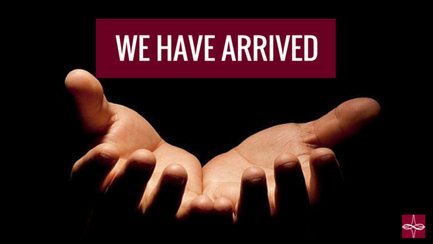

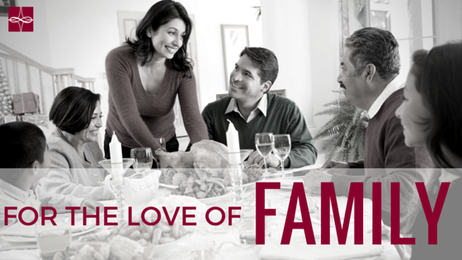
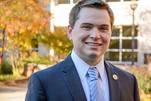
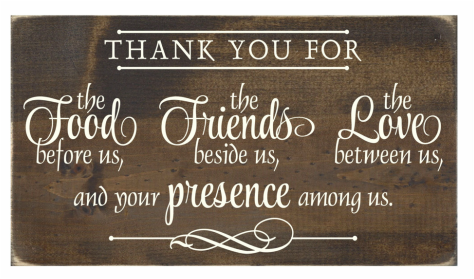

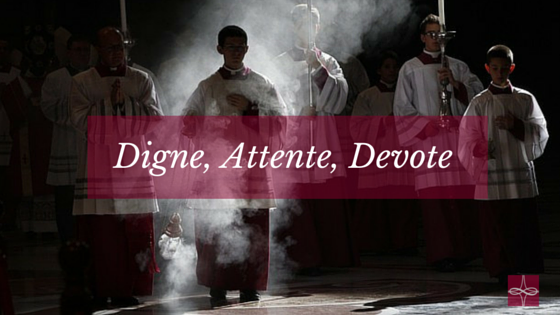

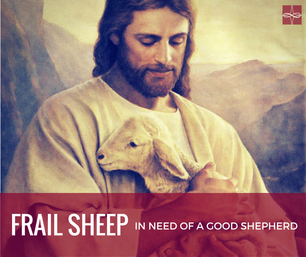
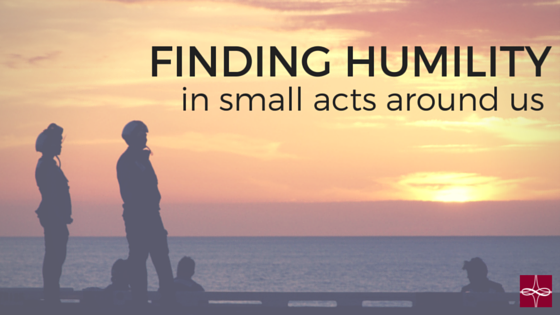
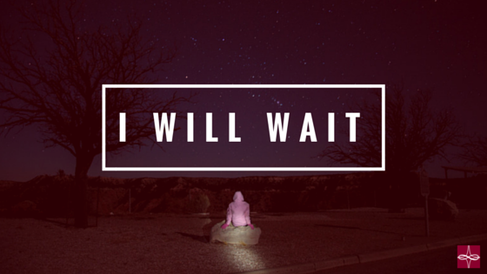

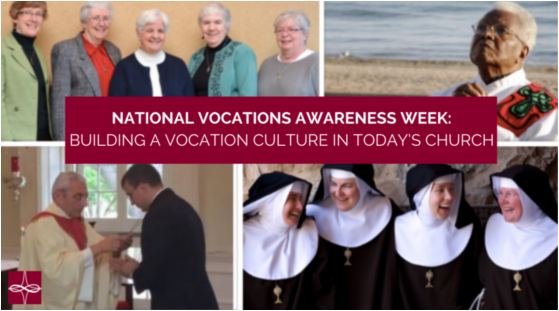

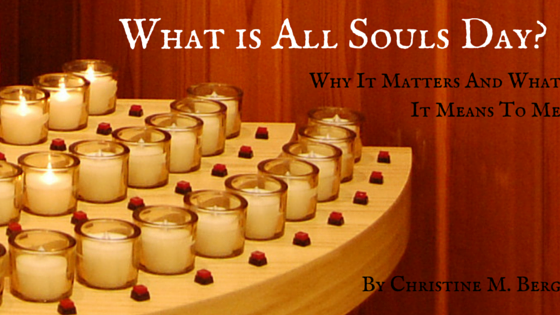

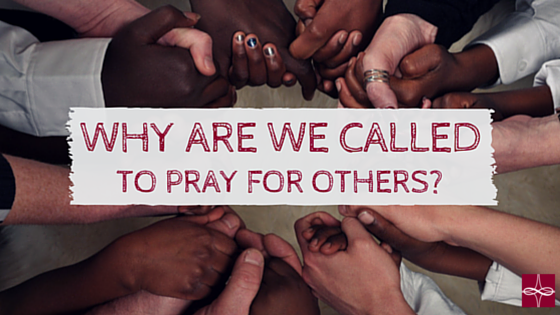

 RSS Feed
RSS Feed